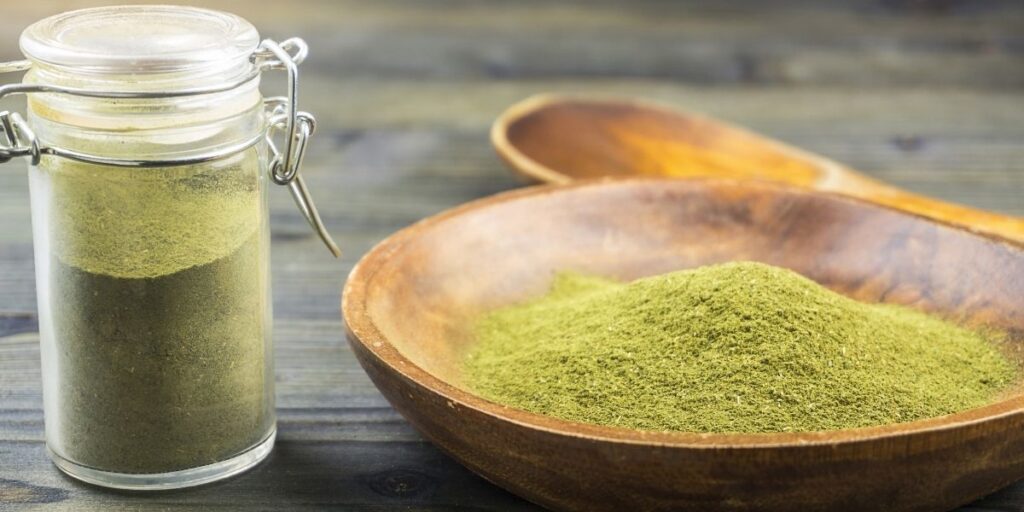Kratom, a botanical substance derived from the leaves of the Mitragyna speciosa tree, has captivated attention for its potential therapeutic properties. While the customary modes of kratom ingestion involve brewing it into tea, encapsulating the powder, or direct oral consumption, a fringe practice has emerged—snorting kratom. This article explores the rationale behind this practice and the multifaceted risks associated with it.
Why Do People Snort Kratom?

The desire to accelerate and amplify the effects of kratom is the principal impetus behind snorting. By circumventing the digestive process and promptly introducing the alkaloids into the bloodstream via the nasal mucosa, some individuals perceive this method as a means to enhance the substance’s efficacy. Yet, the underlying motivations are rooted in a misconception about kratom’s pharmacokinetics and an inclination towards instant gratification.
Why Is Snorting Kratom Dangerous?
Inhaling Kratom should always be done with caution. Kratom is a plant-based substance composed of cellulose and other chemicals that cannot be readily absorbed through nasal mucosa, but require going through digestion to be processed by enzymes in the stomach and then processed further before being processed further by organs such as the liver. Otherwise, inhalation could accumulate in your lungs causing side effects that are potentially debilitating.
Furthermore, misusing Mitragynine could result in the ingestion of an excessive and potentially toxic dose, and lead to some substances from your stomach mixing with your bloodstream. As correct doses are intended for relaxation and energy-boosting benefits alone, such a method would not be required.
Also, side effects should be the primary motivation not to overdose on this herb by inhaling through nasal insufflation. Doing so may present serious health concerns and numerous healthcare professionals have voiced their opinions against inhaling powdery substances that should only be consumed orally.
Doctor Richard Lebowitz, associate professor of otorhinology at New York University, advises against snorting anything. According to him, there can be severe medical ramifications when one snorts anything.
“You must consider both the effects on the nose itself and that of medication on it when considering treatment options.
The venture of snorting kratom navigates through a labyrinth of perilous consequences, largely due to the fragility of the nasal passages. These dangers include:
Tissue Irritation: Intruding with nasal integrity, kratom powder provokes irritation and discomfort, a facet contraindicative of prudent substance use.
Inefficient Absorption: Kratom’s alkaloids, notably mitragynine, are ill-suited for nasal absorption. The ensuing outcome frequently delivers inconsistent and lackluster effects when contrasted with the customary oral route.
Quality Control: Kratom quality fluctuates substantially, and snorting entails a perilous venture into an abyss of potential contaminants and adulterants that can perilously infiltrate the nasal milieu.
What Are The Side Effects Of Kratom Snorting?
Snorting kratom may result in both short- and long-term side effects, according to medical professionals. According to these professionals, these adverse reactions often arise because impurities can be found in powdered substances.
Due to this reason, it is wise to avoid inhaling Kratom through your nose. Furthermore, ingestion could result in overdose as this herbal substance contains excessive plant fiber and cellulose which are then digested by your body when taken orally.
Thus, these substances don’t mix with your blood and therefore cannot harm your body. When inhaled however, this botanical accumulates in your upper respiratory tract and blocks nasal capillaries. Therefore, in order to experience its full effects you will eventually need to consume much larger doses than usual in order to experience Speciosa’s effects.
These side effects encompass both the short-term and long-term realms, underscoring the imperative of well-informed choices.
Short Term Effects of Kratom Snorting
In the immediate aftermath of snorting kratom, the experiential landscape unfolds:
- Nosebleeds
- Nasal swelling
- The buildup of mucous membranes causing nasal blockage
- Trouble breathing
- Nose & throat irritation
Long Term Effects of Kratom Snorting
Venturing into the territory of long-term consequences, the perils expand:
- Damage to the nose & throat
- Damage to the upper respiratory system
- Damage to the mucous membranes
- Lung infections
- Blood clots in the lungs
- Pulmonary embolisms
- Nasal inflammation
- Perforation of the nasal passages
Other Methods for Taking Kratom
The multifaceted landscape of kratom use permits alternatives that obviate the necessity of snorting:
Oral Ingestion: A time-honored and safe route, orally consuming kratom by blending the powdered form with beverages or food furnishes dependable and controlled dosing, averting the associated risks.
Capsules: Pre-measured capsules negate the cumbersome handling of powdered kratom, ensuring precise dosage administration.
Tea Preparation: Adhering to tradition, the brewing of kratom tea offers a method that encapsulates the essence of the herb in a manner both palatable and gentle.
Kratom Overdose: Yet Another Risk Factor of Snorting

Overdosing on kratom is not a nebulous prospect, particularly when undertaking unconventional methods like snorting, which may intensify and expedite the onset of effects, leading to a surge in potential overdose cases.
Nausea and Vomiting: Excessive kratom intake may induce profound nausea and uncontrollable emesis, incapacitating the user.
Dizziness: Dizziness is a common manifestation of kratom overdose, ushering in a disorienting and precarious state.
Respiratory Depression: An overdose of kratom can throttle the respiratory drive, culminating in severe respiratory depression—a medical emergency.
Tachycardia: An escalating heart rate is another facet of kratom overdose, provoking cardiovascular distress.
Conclusion
The enthralling journey into the world of snorting kratom unravels a complex web of dangers, with risks entailing tissue irritation, inefficient alkaloid absorption, and a labyrinth of product quality uncertainties. The panorama of short-term discomfort and long-term tissue damage within the nasal passages reveals the indispensable role of informed decisions when it comes to herbal supplements like kratom. The road less traveled by oral ingestion, encapsulation, or tea preparation supports safety and predictability, as snorting remains a terrain fraught with dangers. In the crucible of overdose, snorting exacerbates the already palpable risk, making it an inadvisable and perilous venture into the world of kratom consumption.


